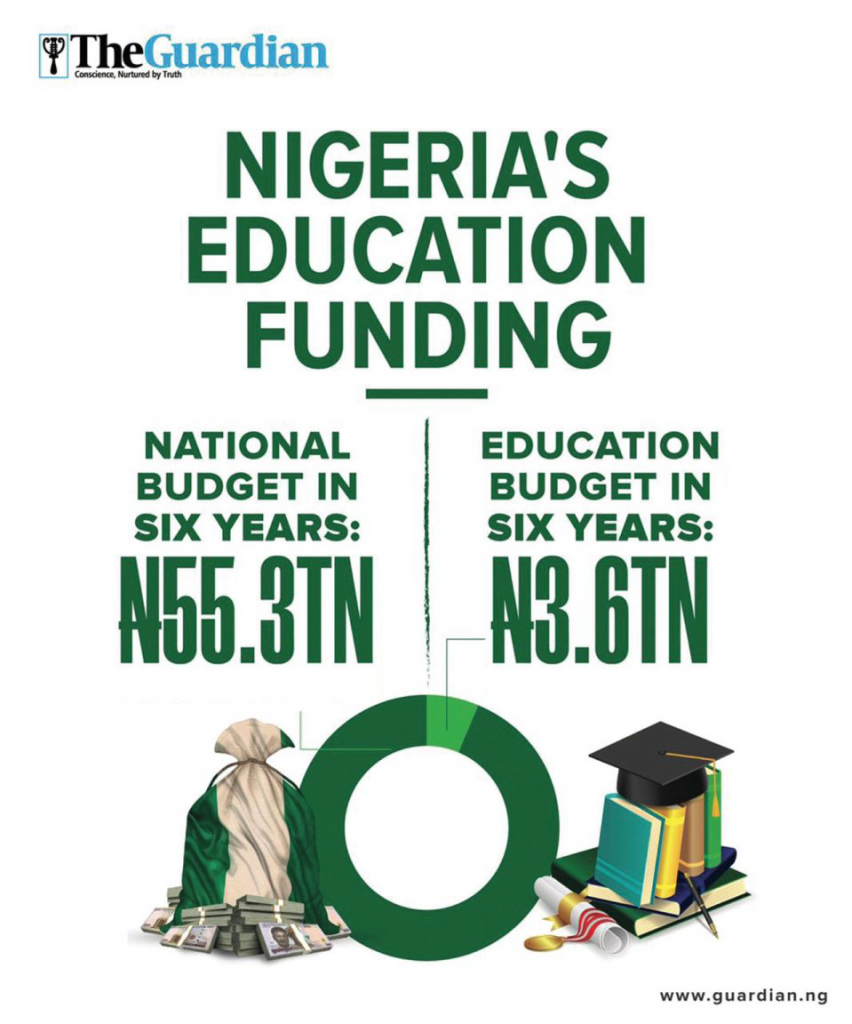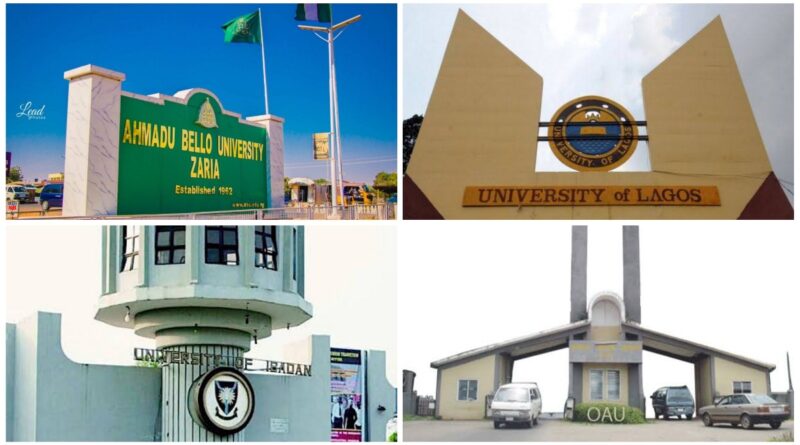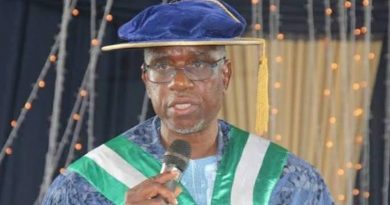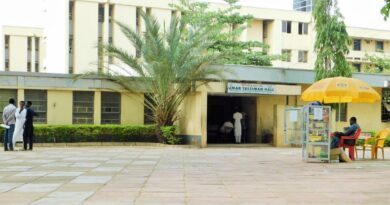Interrogating cost of education for undergraduates in federal, state varsities
By Iyabo Lawal and Opeyemi Babalola
When Olakunle Olomide secured admission to study medicine at Olabisi Onabanjo University (OOU), the joy of his parents knew no bounds, but when they were handed the bill of N650, 000 for tuition and other sundry expenses, their hearts skipped a beat. The bill is exclusive of accommodation, feeding, and others. They wondered why the bill should be that high in a public university.
For Babatunde Olorunfemi, his dream of going to university was cut short due to finance. With 263 in the Unified Tertiary matriculation examination (UTME) and 64 percent in Post-UTME, which qualified him for admission at Federal University, Oye Ekiti (FUOYE), Olorunfemi’s father lost his job as a hotel manager in the Ijoko area of Ogun State, halting his dream of earning a university degree, as there was nobody to finance his education.
Although federal universities are almost tuition-free, there are so many sundry charges that made the whole phrase of tuition-free in public universities a ruse. The situation is almost the same in state-owned schools. So, if expenses by undergraduates in public universities are high, why is the claim that federal universities are free?
Budget for education
NIGERIA has not been able to meet international standards regarding budgetary provisions for education and even has been doing far less than some of her neighboring countries. In six years, Nigeria budgeted N3.6 trillion out of N55.3 trillion for education.
The period covers the year 2016 to 2021. In 2016, out of the total budget of N6.06 trillion, the sum of N369.6 billion, or 6.7 percent was allocated to public education. In 2017, N550 billion, or 7.38 percent was allocated to education out of N7.29 trillion, while in 2018, N605.8 billion, representing 7.04 percent was earmarked for the sector out of the N9.2 trillion budget. In 2019, N620 billion or 7.05 percent was allocated to education out of the budget of N8.92 trillion, while in 2020; N671.07 billion or 6.7 percent was given to education out of N10.33 trillion.

In 2021, N742.5 billion, or 5.6 percent was allocated to education out of N13.6 trillion. According to reports by World Bank, Ghana allocated 23.81 of its national budget to education in 2015, 22.09, 20.1, and 18.6 percent in 2016, 2017, and 2018 respectively.
South Africa, has kept increasing allocations to education from R246 billion in 2018, R310bn in 2019, and R387bn in 2020, and projected that it hits R416 bn by 2023/24.
The Universities (Miscellaneous Provisions) Act No. 11, 1993 as amended by Universities (Miscellaneous Provisions)(Amendment) Act No. 55 of 1993, indicates that public universities are tuition-free for prospective students. And to buttress this, the Federal Executive Council on May 9, 2018, declared payment of tuition in public universities illegal. The FEC reminded us that laws establishing federal institutions do not allow these schools to charge students.
But with the lingering strike by the Academic Staff Union of Universities (ASUU), there have been divergent views on exploring alternative funding for public universities. Although some have renewed calls for the introduction of tuition as a source of generating revenue, many, however, argued that most of the institutions have introduced sundry charges running into thousands, which parents and newly admitted students are agonizing over.
Over the years, federal and state universities have found ways to make students pay sundry charges in place of their original tuition-free status.
These fees vary and are given different names by the various institutions. Some of these charges include acceptance fee, development levy, identity card, registration, matriculation, medical, examination, library and sports fees, students handbook, ICT registration, university calendar, caution deposit and hall levy.
Others are departmental registration, student union dues, utility/sundry charges, certificate verification fee, faculty dues, security fee, science students fee, non-science students fee, medical referral fee, lab services, tertiary institutions social health insurance programme (TISHIP) fee, books and stationaries, internet bills and general up-keep in an academic year, including feeding and miscellaneous constitute private cost in university education and an average of N265, 000 is the private cost of a student in a year. This indicates that the statement of free education is not a true representative of what it ought to mean if only tuition is free.
Findings by The Guardian showed that many federal and state universities charge over N50, 000 from each prospective student as acceptance fee before being allowed to register.
In some universities, money paid for acceptance fee is between N35, 000 and N50, 000. This is different from registration, which comes with different sub-headings.
Investigations showed that the University of Benin (UNIBEN) is charging between N60, 000 and N80, 000 as acceptance fees, depending on the course of study. While the University of Lagos (UNILAG) charges N40, 000, University of Ibadan charges N35, 000 depending on faculty; University of Abuja charges N42, 000, Federal University of Technology, Minna, charges N30, 000, while Ahmadu Bello University (ABU), Zaria, charges between N25, 500 and N44, 500.
Federal University of Technology, Owerri (FUTO) charges N42, 000, University of Nigeria (UNN), Nsukka, charges N25, 000. Apart from acceptance fee, fresh students admitted to read sciences at the University of Calabar (UNICAL) pay N35, 250 during registration; non-science students pay N34, 250, while MBBS and nursing students pay N42, 750.
Imo State University charges N70, 000, while Michael Okpara University of Agriculture, Umudike, Umuahia, charges N50, 000.
Lagos State University (LASU) collects N20, 000 while Osun State University (UNIOSUN) takes N40, 000.
But beyond acceptance fees, investigations by The Guardian showed that an average undergraduate in any federal and state university spends between N280, 000 and N350, 000 every academic session on sundry/ private expenses.
These discriminatory fees have become a source of worry to parents and indigent students, who are finding it difficult to pay, considering the fact that federal universities are considered to be tuition-free.
A 300-level student of University Of Nigeria, Nsukka (UNN), who identified herself as Nnenna Okosun, said apart from registration fee of 25,000, other costs include Laptop fee 70,000; tuition 83,950; Hostel accommodation 11,500; Faculty fee 1,500; Departmental: 2,500; handbook: 2,000; books and handout 80,200, while feeding and allowances amounted to 225,000.

At Yaba College of Technology, acceptance fee for ND students costs 10,000; while for HND is N20, 000; tuition for fresh students is N50, 000 while subsequent years cost 30,000; hostel fee varies between N40, 000 and N80, 000; while feeding for a month costs N80, 000, totalling N180, 000 for ND and 210,000 for HND students.
At Delta State Polytechnic, Ogwashiuku, acceptance fee for ND students costs N12, 500; tuition: N61, 900; Department /Faculty dues 17,500; books and handouts: 45,000; while accommodation is between 80,000 and 100,000. For HND Students, acceptance fee is 21,000; tuition 75,000, Department /Faculty dues 19,500, books and handouts: N45, 000; and accommodation between 80,000 to 100,000, totaling 216,900 for OND and 240,500 for HND students.
At University of Benin, aside from acceptance fee of N60, 000; tuition for fresh students is 76,000 and for subsequent years, 36,700. Accommodation costs 50,000; departmental/faculty dues: N1, 500, while books ad handouts cost N30, 000.
At Delta State University Abraka, Acceptance fee 40,000; tuition costs N85, 000, Department /Faculty dues N21,000; books and handouts 45,000 and accommodation is N100,000.
At University of Calabar, apart from acceptance fees, fresh students offering science courses pay N62, 850 as school fees, while non-science students’ pay N61, 850; accommodation costs 85,000, handout and books N40, 000;while an average cost for feeding and sundry issues cost about N180, 000. For returning students, science students pay ₦47,350, while those studying non-science courses pay ₦46,350 as school fees.
For new students at OAU, Ile-Ife, new students pay between ₦44,000 and ₦58,000 depending on department, while returning students pay ₦31,000 as tuition. Accommodation off-campus costs N65, 000, handouts and books cost N50, 000 while an average cost of feeding for a session is N150, 000.
At the University of Lagos, new students offering science-related courses pay ₦66,000 while those offering non-science courses pay ₦56,000 as tuition respectively. For those in private hostels, some pay as high as N360, 000 per session, while others pay between N180, 000 and N250, 000. Handouts and books are about N100, 000 while feeding and other sundry expenses go as high as N250, 000.
At University of Uyo, new students pay ₦60,250, returning students ₦52,100 and final year students ₦49,100 as school fees; accommodation costs N80, 000. Medicals and departmental fees N25, 000; handouts and books cost N55, 000, feeding N150, 000.
At Federal University, Otuoke, Bayelsa State, school fees for those in sciences and engineering is ₦106,000; Management Sciences and Education courses cost ₦96,000; accommodation is N120, 000; handouts and books N45,000; medical costs N10,000; departmental and faculty fees: N4,000, while average cost of feeding, transportation and sundry expenses is N150,000.
Enquiries by The Guardian at both federal and state-owned universities showed that tertiary education is not free after all.
For instance, Ola Soaga, a 300-level Political science student at the University of Ilorin (UNILORIN), said apart from acceptance fee, she paid 52,100 as tuition in her first year and 27,250 in her second and third year, accommodation per annum is 120,000, while feeding and other sundry expenses amounted to N180, 000.
Also, Tunde Alao, who currently studies Mass Communication, at Lagos State University (LASU), said his school fees is N25, 000 naira per academic year, with other expenses like accommodation N120, 000; feeding N150, 000, books and handouts put at N50, 000, among others, every year.
He said that while his acceptance fee was 20,000, he also paid 10,000 for medical fee.
“If we are clamouring for complete free education, especially in tertiary institutions, we wont get quality. So, just like we are supporting academic excellence, we need to contribute our part as well to enhance what we need to get qualitative learning,” he added.
On her part, Precious Ogwa of UNIBEN, currently in 300-level Mass Communication, lamented the exorbitant nature of federal institutions.
“I didn’t expect public universities to be expensive, apart from school fees and accommodation, we also cough out fees for departmental, project and class dues.”
Ogwa said she paid N60, 900 acceptance fee and N69, 900 for school fees, and subsequently paid N41, 000 tuition. For accommodation, feeding, books and handouts, she paid N150, 000, N180, 000 and N45, 000 respectively.
“Education in federal institutions is not free. We spend like state universities, when you add all the extra payment made during the semester. I always say you can’t attend a public university without money, don’t attempt it. So, it is never free, not even near free,” she added.
Ibrahim Adebiyi, a 200-level student of Kwara State University (KWASU), said he paid N35, 000 acceptance fee, while he paid N150, 000 and N147, 000 respectively, in his first and second year.
This, he said, excluded other fees like departmental, association, medical, accommodation, transportation, feeding and other sundry charges.
Adebiyi said: “Hostels start from N150, 000, four of us had to share a room to be able to pay. We contributed N70, 000. For school hostels, it is four students in a room and they paid N50, 000 each. He puts feeding at N120, 000, transportation N25, 000; handouts N45, 000 among others.
To give an idea of how much could accrue from fees, the University of Nigeria, Nsukka, has a population of about 30,000 students, The Federal University of Technology, Akure (FUTA), has about 15,000, UI about 30,000 students, UNILAG has about 35,000 students, University of Ilorin 20,000; UNICAL has about 25,000 Bayero University, Kano (BUK) has about 40,000; Ahmadu Bello University (ABU), Zaria, 45,000; LASU 32,000; Olabisi Onabanjo University (OOU), Ago-Iwoye, 40,000; University of Benin, 35,000; Ambrose Alli University (AAU), 35,000, University of Abuja 13,000; Federal University, Oye Ekiti (FUOYE) 23,000; Ekiti State University (EKSU) 23,000; and Nnamdi Azikwe University, Awka, 35,000, among others.
Monies from other certificate, diploma, part or full time courses run by the universities, are paid into accounts different from TSA, but after making provisions for payment of lecturers, running costs and other costs, whatever is left is paid into the TSA. The same goes for JUPEB, IJMB and others run by the universities.
How we come about fees, Soremekun, Olayinka reveal
MEANWHILE, former Vice Chancellor, FUOYE, Prof Kayode Soremekun, said to effectively run the institution, his administration introduced what is called ‘user fees’ for students to pay for facilities used.
Soremekun argued that the concept of free tuition is a myth being promoted in the nation’s educational system, which is very difficult to achieve at this point in time.
He said the only place where such is possible is Europe, where the countries are heavily disposed to welfarism.

“In those places, the tax system is not only very efficient, but it is also very comprehensive so that they can even afford to give foreigners the so-called tuition-free,” he said.
According to him, the arrangement in the country does not allow for tuition free environment, because as “my argument has always been that somebody is paying for it, or somebody has paid for it or somebody would pay for it.”
He said, “so, what most universities do, including FUOYE, is to put in place what we call “user fees,” that is, for every facility you enjoy, we impose something on the students such that at the end of the day, we have results to show for it.
“Within five years of my tenure, we were being ranked as one of the best universities in the public sector. We’ve built a laboratory, we had to provide software in the form of equipment and how do you intend to do that? It costs money,” he stated.
Soremekun reminded that education is not cheap, as each institution must put necessary things in place to make teaching and learning conducive.
“We had to put things in place to service the health centre, and for the professional courses, like pharmacy, nursing and medical laboratory science, among others, where you need a lot of capital outlay, we have to charge something so as to keep those courses going.
“As I speak, within a space of five years, we were offering all the courses in first generation universities except medicine, even then, we managed to puts in place 50 per cent of the medical programme, on the platform of basic medical sciences.
“The sooner all stakeholders realised this, the better,” the former VC said.
On his part, immediate past Vice Chancellor of UI, Prof Idowu Olayinka, said the Federal Government only permitted the university to charge N45,000 for sundry expenses.
In terms of accommodation, Prof Olayinka said students pay N30, 000 per bed space, which is not enough to maintain the hostels.
He said: “As far back as 1986, government had hands off accommodation issues and left it for each university to handle. In our case, we were charging N14, 000 per bed space, but we could not do anything. In year 2017, we set up a committee to look into the issue of hostel accommodation and what they came up with was that each bed space would cost N60, 000, but we felt there was no way we could increase from N14, 000 to N60, 000, so, we pegged it at N30, 000, while the medical hostel was increased to N40, 000. As a result of inflation, the committee suggested that the fee be reviewed after two years but it’s still the same. Already, there is a gap and we still have to pay electricity bills, water treatment and general maintenance.
The major problem is underfunding, lecturers have been on strike for over seven months but you cannot say because of that, you will close the school. We still have to pay bills and do general maintenance.
“The university is always running in deficit. If it were a private company, it would have been under receivership. The fundamental thing is the funding model. If government says we should not charge for tuition, and we are spending more than we earn, who is going to pay the balance? If its going to cost N100 to run a particular system for instance and government says it can only provide N70, and we should not charge more than N5, then, who is going to provide the remaining N25? There is that gap and government is not ready to provide the balance,” Olayinka added.
Subventions from government
FOR federal universities, subventions by the Federal Government are calculated based on staff strength, number of students, locations and other factors. That means they don’t get the same amount from the government.
How much is needed to run a university yearly?
OPINIONS are divided on how much is required to run a university annually. This is because the size and nature of courses are important in determining figures to look at. But going by the fact that the Federal Government usually allocates N4 billion as take off grant for newly-established universities, one may be tempted to think that is enough.
Also the call by the leadership of the Academic Staff Union of Universities (ASUU), that the National Universities Commission (NUC) should mandate those who want to set up new universities to put aside between N30 and N40 billion as running costs for at least three years could mean that an average university may need about N10 billion to run yearly.
Some expenditure borne by universities
Whether state or federal universities, the owner government pays staff salaries and provides facilities. However, some expenses, including electricity and cleaning of hostels are borne by the management, which are sourced from internally generated revenue.
To alleviate the private cost burden on students, stakeholders recommended that students should have access to loan using their intended certificate as collateral.
Credit: Guardian.ng








